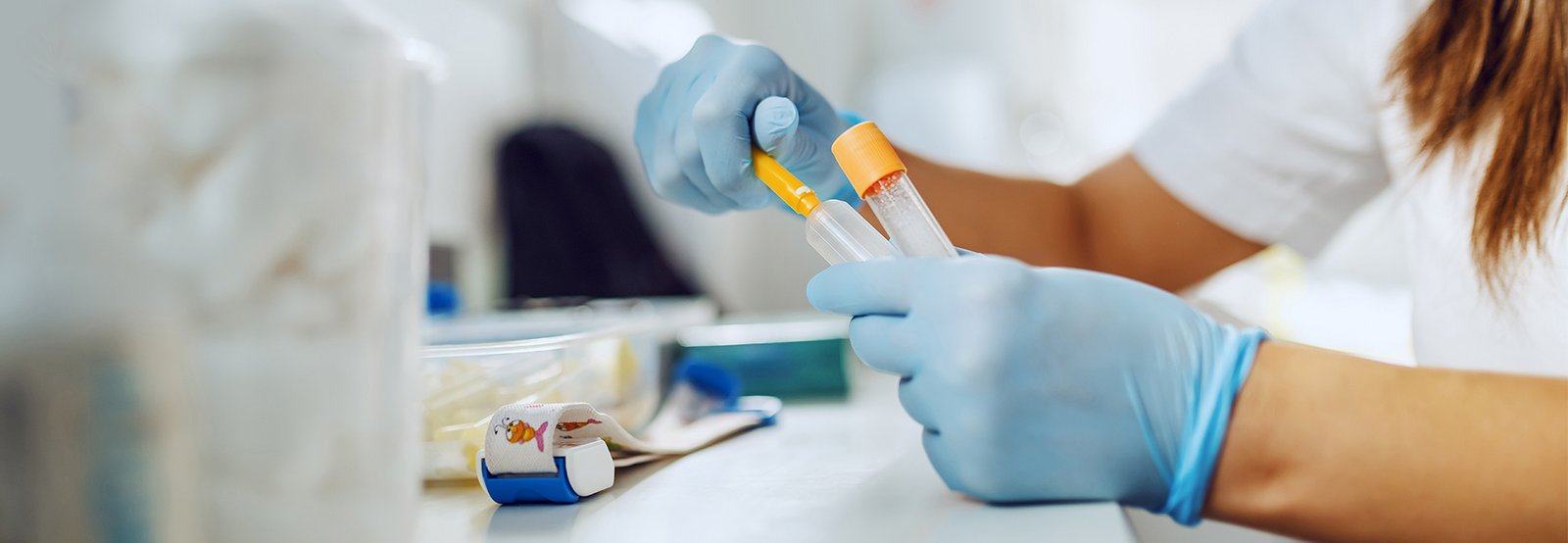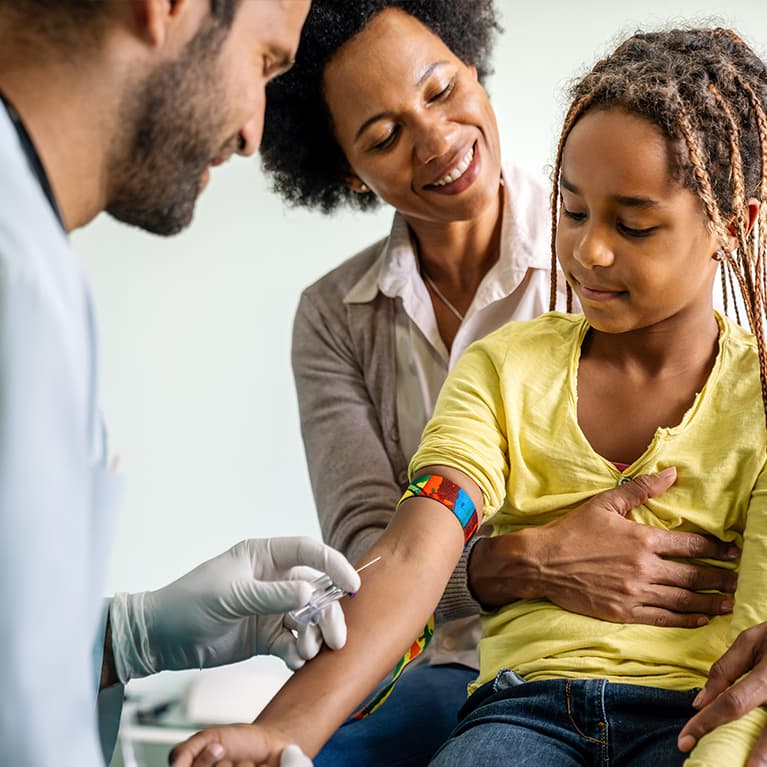
Purposes of accompanying genetic analyses and relevant procedures
Every human being is different. Two patients suffering from the same illness may respond differently to the same medication. Besides varying environmental factors based on lifestyle, genes play a role as well.
Such factors are given special consideration in clinical drug trials. Whether a medicinal product is effective in children or how well it is tolerated may depend on their genetic predisposition. Therefore, genetic analyses are performed in the course of clinical studies as well.

The purpose is to perfectly adjust medicinal products to specific patient groups, based on so-called “pharmacogenetic” analyses, reducing side effects. Should such issues arise in the study offered, parents will be explicitly informed and advised accordingly.
Accompanying genetic analyses require a specific declaration of consent by the parents and/or the child. The data obtained from the genetic analysis must only be used for the research purposes to which the parents and the child have consented. They are entitled to withdraw their consent at any time.
In order to ensure the quality and safety of the medication and the study participants, the responsible authority in Austria (BASG, Federal Office for Safety in Health Care) is entitled to inspect the data obtained from genetic analyses. Pursuant to data protection law, the data obtained and the tissues used for the analysis must be safely stored for 15 years after termination of the study.
For genetic analysis, either a mouth swab, a blood sample or a tissue sample is used. Data from many patients are collected for a study. At the end of the study, researchers will search for comparable patterns in the genes within the group of participants by whom the study drug was well tolerated. Such tests will help develop medicinal products that are safer and more effective. This so-called “personalised medicine” allows to achieve better treatment results and, hence, improved quality of life.
